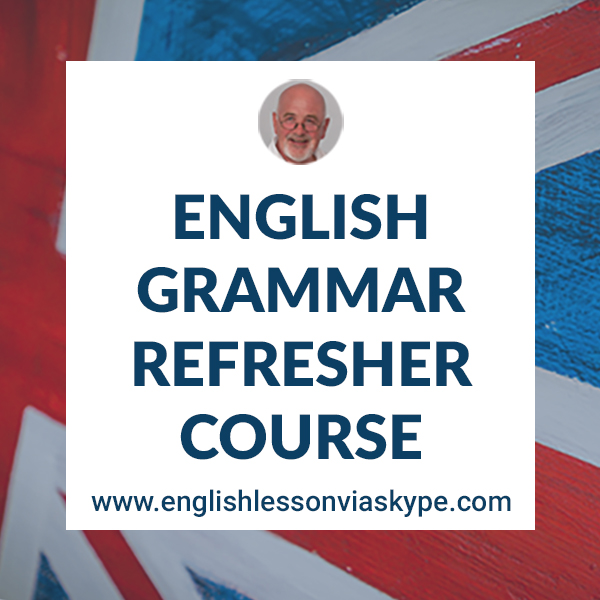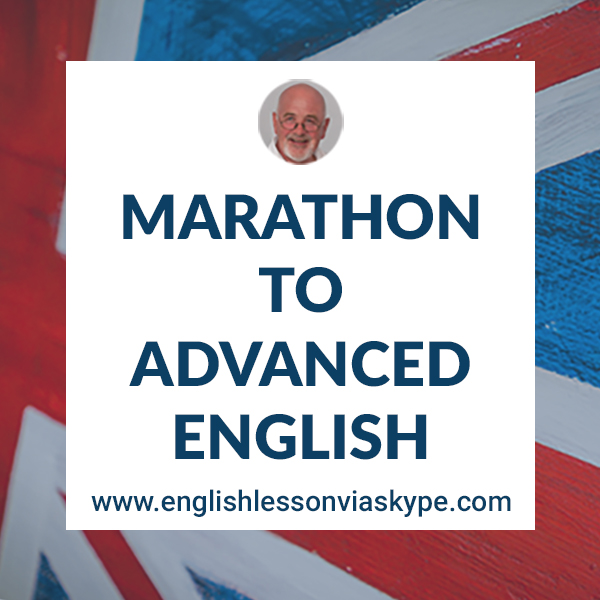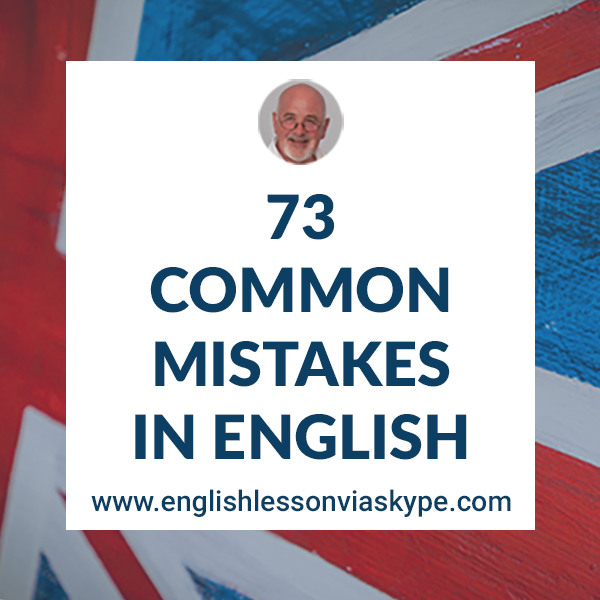In this post you will learn everything you need to know about comparatives and superlatives in English.
It also includes 2 video lessons.
Comparative and superlative adjectives are used to compare people and things. Comparative adjectives are used to compare two things. We use superlative adjectives in English when we compare three or more things.
Table of Contents
Forming Comparatives and Superlatives Adjectives
There are two basic ways of forming comparatives and superlatives in English.
One-syllable and some two-syllable adjectives
In general one-syllable words and some two-syllable words (those ending in consonant + –y and a few others: easier, happiest, narrower, cleverest) take -er, -est endings.
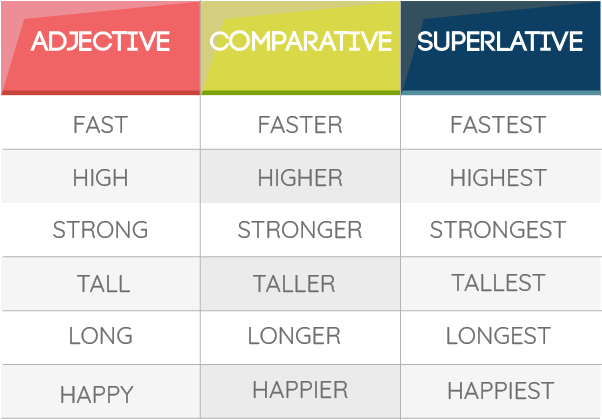
Two syllables and three syllables adjectives
Most long adjectives (most two syllables and three syllables) add more, most before the adjective.
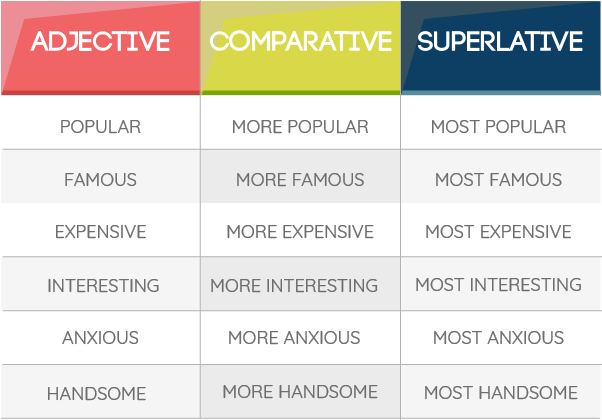
Intermediate to Advanced English Marathon

INSANITY: doing the same thing over and over again and expecting different results.
Albert Einstein
- What you'll learn:
- better understanding of more complex grammar structures
- advanced English vocabulary words
- British & American slang
- perfect your listening skills through practing different accents
- This marathon is for you if you're:
- stuck at an intermediate English level
- tired of confusing explanations
- a mature student
- shy & introverted
Irregular Comparatives and Superlatives Adjectives
There are three adjectives with irregular forms:
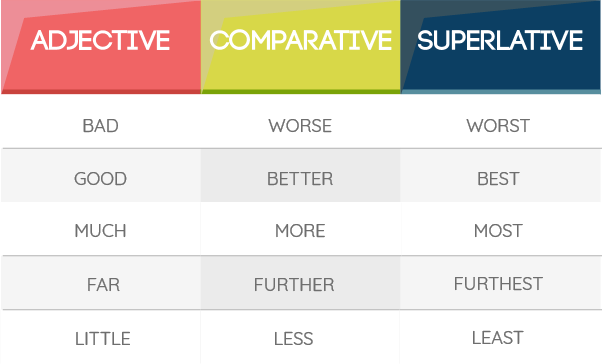
The Olympic motto is “faster, higher, stronger”. TV viewers can watch the excitement of downhill skiing, bobsleigh, speed skating and ski jump. Who will be the fastest skier on the slopes? Which country has the strongest ice hockey team? Which team will win the most gold medals and top the medal table?
The French competitor’s ski jump was long.
However the Italian athlete’s distance was longer.
The German’s jump was the longest and he won the gold medal.
The Russian ice hockey team is strong and they stand a good chance of a medal.
The USA team is stronger. They beat the Canadians in a recent competition.
The Canadian team is the strongest and they should win the gold medal.
The Austrian skier is fast.
The French skier is faster and should win the silver medal this time.
The Swiss skier is the fastest by 5 seconds. He is expected to win an Olympic gold medal.
The fastest speed recorded on a bobsleigh track is 125 miles per hour. Germany have a strong bobsleigh team, but experts agree that the United States team is stronger, so they should win the gold medal.
Amy Williams won skeleton gold in Vancouver for Britain with a time of 3 minutes 35 seconds. She was the fastest woman in the competition.
Who will be the fastest female skier on the slopes?
The American skier is quick, but the Austrian competitor is even quicker. She’ll be favourite to win a gold medal.
Which athlete will jump furthest in the ski jump? The longest jump was made by a skier from Norway, who broke the world record.
The Austrian ski jumper is just 17. She is the youngest athlete in the competition.
Use the adjectives in brackets to compare the following:
1 mile/1 kilometer (long)
ex. 1 mile is longer than 1 kilometer.
1. The Eiffel Tower/The Statue of Liberty (tall)
2. The Pacific Ocean/The Atlantic Ocean (deep)
3. London Heathrow Airport/Amsterdam Schiphol Airport/Dublin Airport (busy)
English Comparative and Superlative Adjectives - Video Lesson
My English learning videos on YouTube will also help you better understand the rules of Comparatives and Superlatives in English:

Two Syllable Adjectives
Some of the two-syllable adjectives such as:
- clever
- common
- stupid
- narrow
- gentle
- friendly
- simple
take either -er/-est or more/most
For example,
common – commoner – commonest
OR
common – more common – most common
Both options are correct.
Irregular Comparatives and Superlatives in English - Video Lesson

Important Rules of Using Comparative and Superlative Adjectives
1. VERY + adjective
ex. It is very cold today.
2. EVEN / A LOT / MUCH / FAR / A BIT / A LITTLE / SLIGHTLY + comparative
ex. He seems much better today.
It is slightly warmer outside.
3. BY FAR + superlative
ex. She’s by the far the most beautiful woman I’ve ever seen.
4. MOST + adjective = very
ex. This is most unusual. (This is very unusual.)
5. ANY/NO + comparative
ex. The weather is not getting any warmer.
Harry
More Information
Try this short interactive exercise to practice forming comparatives and superlatives in English.
For more information on English grammar rules, English idioms and English Phrasal Verbs, check out the following links:
WHAT IS THE DIFFERENCE BETWEEN WILL AND GOING TO
